#Economy
Text

A.2.4 Are anarchists in favour of “absolute” liberty?
No. Anarchists do not believe that everyone should be able to “do whatever they like,” because some actions invariably involve the denial of the liberty of others.
For example, anarchists do not support the “freedom” to rape, to exploit, or to coerce others. Neither do we tolerate authority. On the contrary, since authority is a threat to liberty, equality, and solidarity (not to mention human dignity), anarchists recognise the need to resist and overthrow it.
The exercise of authority is not freedom. No one has a “right” to rule others. As Malatesta points out, anarchism supports “freedom for everybody … with the only limit of the equal freedom for others; which does not mean … that we recognise, and wish to respect, the ‘freedom’ to exploit, to oppress, to command, which is oppression and certainly not freedom.” [Errico Malatesta: His Life and Ideas, p. 53]
In a capitalist society, resistance to all forms of hierarchical authority is the mark of a free person — be it private (the boss) or public (the state). As Henry David Thoreau pointed out in his essay on “Civil Disobedience” (1847)
“Disobedience is the true foundation of liberty. The obedient must be slaves.”
#faq#anarchy faq#revolution#anarchism#daily posts#communism#anti capitalist#anti capitalism#late stage capitalism#organization#grassroots#grass roots#anarchists#libraries#leftism#social issues#economy#economics#climate change#climate crisis#climate#ecology#anarchy works#environmentalism#environment#solarpunk#anti colonialism#mutual aid#cops#police
87 notes
·
View notes
Text
i can’t help but think FR as a whole has become more money hungry. it seems like they’re trying to change the game to a more fast-paced game, with constant new breeds, constant events, constant genes so people are more pressured to spend money so they can get the new next thing. ancients not having apparel also feels like a way to funnel a need for the expensive, one time use, and simplest items on FR: genes. so many of these new ancients are beyond boring for what they’ve been marketed as, and the only way to fix them is with genes (usually gem genes). the fact that all the genes won’t transfer from Ancient to Ancient feels like it reinforces this point. why on earth are the genes not transferable from ancient to ancient. the genes aren’t super specific either. blossom is a gene that fits on all of these ancients. veilspuns not having veils as a tert is silly. yes i get that they might slowly add the genes to the other breeds gene pool but??? why not release the gene for all breeds at the same time?? it feels like a marketing tactic to revisit interest for a breed that has already been out for while. i get it, flightrising is a business. but it’s just become ridiculous at how much they’re pushing for mid-tier updates just to build hype. they need quality control. it feels like the game became greedy af. i hope they figure out their shit before more people get tired of it
18 notes
·
View notes
Text

72K notes
·
View notes
Text
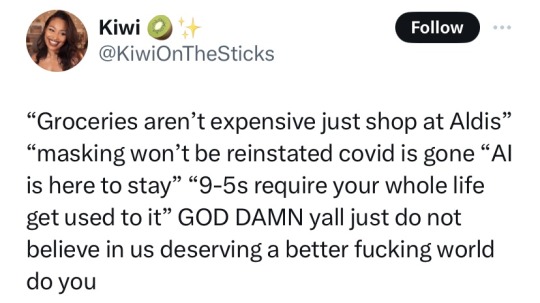
57K notes
·
View notes
Text


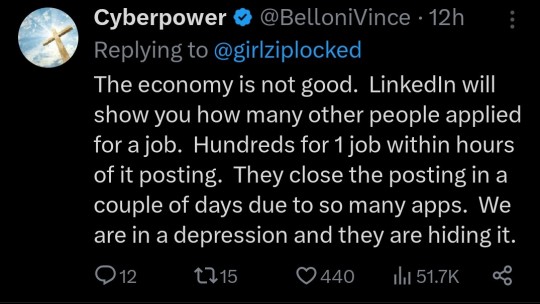

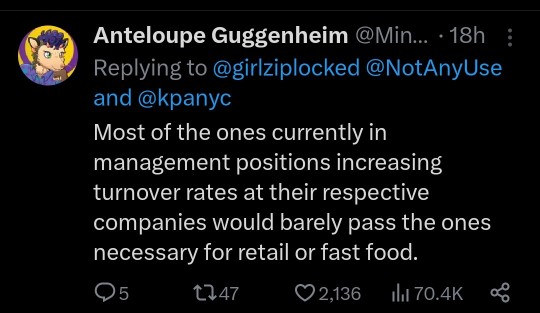
67K notes
·
View notes
Text
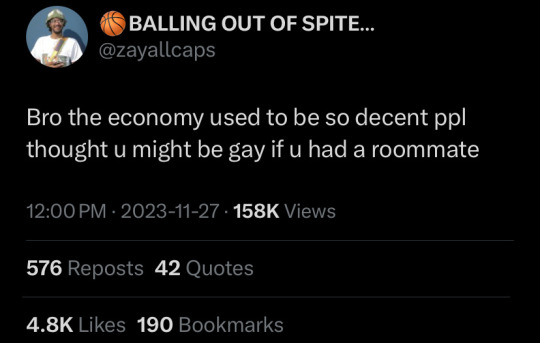
#lgbt#lgbtq#lgbtqia#economics#economy#capitalism#politics#twitter#tweets#tweet#meme#memes#funny#lol#humor
72K notes
·
View notes
Text
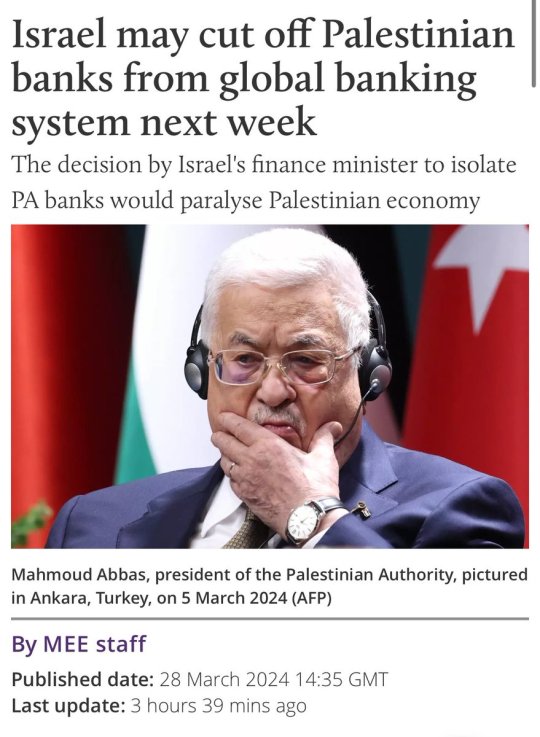
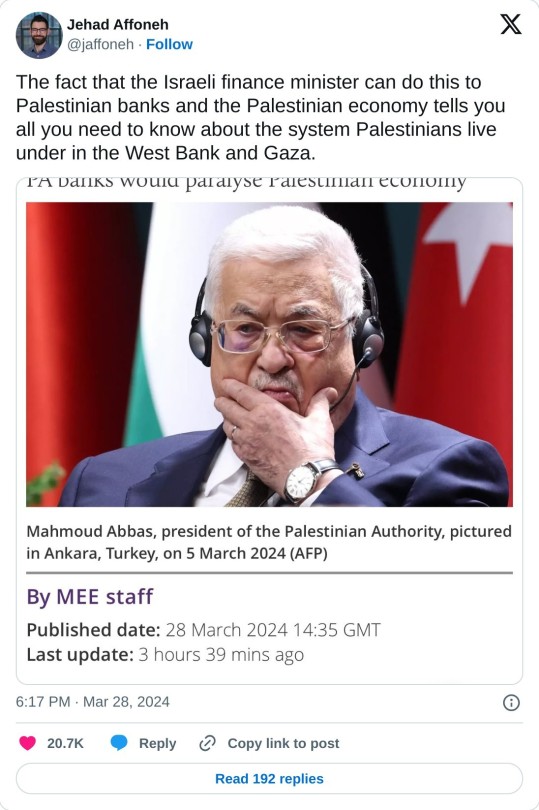
Palestinian banks could be cut off from the Israeli banking system starting next week following a decision by Israel’s finance minister to cease dealings between the two financial institutions, according to a report on Thursday by Israeli newspaper Haaretz.
Israeli Prime Minister Benjamin Netanyahu has two days to convene a cabinet meeting to discuss reversing plans by Finance Minister Bezalel Smotrich to isolate Palestinian banks from both the Israeli and international banking systems.
The Palestinian economy is based on the Israeli currency, the shekel, making it reliant on ties to Israel and its financial dealings with the rest of the world must go through the Bank of Israel and Israeli banks.
We call this Apartheid.
#yemen#jerusalem#tel aviv#current events#palestine#free palestine#gaza#free gaza#news on gaza#palestine news#news update#war news#war on gaza#apartheid#end the occupation#end the apartheid#economy
26K notes
·
View notes
Text

18K notes
·
View notes
Text

#goth#gothic#funny#lol#haha#humor#meme#memes#tweet#twitter#alternative#mental health#introverts#grunge#economy
17K notes
·
View notes
Text
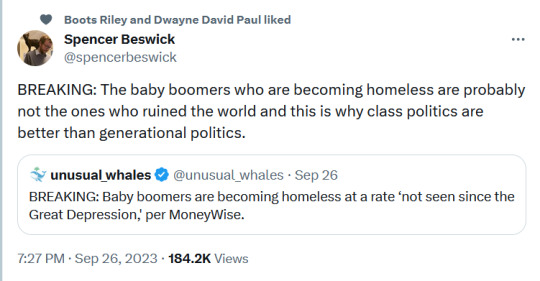
#twitter#tweet#tweets#boomers#economics#economy#homeless#class politics#generational politics#class#inequality#wealth inequality
42K notes
·
View notes
Text

A.2.6 Why is solidarity important to anarchists?
Solidarity, or mutual aid, is a key idea of anarchism. It is the link between the individual and society, the means by which individuals can work together to meet their common interests in an environment that supports and nurtures both liberty and equality. For anarchists, mutual aid is a fundamental feature of human life, a source of both strength and happiness and a fundamental requirement for a fully human existence.
Erich Fromm, noted psychologist and socialist humanist, points out that the “human desire to experience union with others is rooted in the specific conditions of existence that characterise the human species and is one of the strongest motivations of human behaviour.” [To Be or To Have, p.107]
Therefore anarchists consider the desire to form “unions” (to use Max Stirner’s term) with other people to be a natural need. These unions, or associations, must be based on equality and individuality in order to be fully satisfying to those who join them — i.e. they must be organised in an anarchist manner, i.e. voluntary, decentralised, and non-hierarchical.
Solidarity — co-operation between individuals — is necessary for life and is far from a denial of liberty. Solidarity, observed Errico Malatesta, “is the only environment in which Man can express his personality and achieve his optimum development and enjoy the greatest possible wellbeing.” This “coming together of individuals for the wellbeing of all, and of all for the wellbeing of each,” results in “the freedom of each not being limited by, but complemented — indeed finding the necessary raison d’etre in — the freedom of others.” [Anarchy, p. 29] In other words, solidarity and co-operation means treating each other as equals, refusing to treat others as means to an end and creating relationships which support freedom for all rather than a few dominating the many. Emma Goldman reiterated this theme, noting “what wonderful results this unique force of man’s individuality has achieved when strengthened by co-operation with other individualities . .. co-operation — as opposed to internecine strife and struggle — has worked for the survival and evolution of the species… . only mutual aid and voluntary co-operation … can create the basis for a free individual and associational life.” [Red Emma Speaks, p. 118]
Solidarity means associating together as equals in order to satisfy our common interests and needs. Forms of association not based on solidarity (i.e. those based on inequality) will crush the individuality of those subjected to them. As Ret Marut points out, liberty needs solidarity, the recognition of common interests:
“The most noble, pure and true love of mankind is the love of oneself. I want to be free! I hope to be happy! I want to appreciate all the beauties of the world. But my freedom is secured only when all other people around me are free. I can only be happy when all other people around me are happy. I can only be joyful when all the people I see and meet look at the world with joy-filled eyes. And only then can I eat my fill with pure enjoyment when I have the secure knowledge that other people, too, can eat their fill as I do. And for that reason it is a question of my own contentment, only of my own self, when I rebel against every danger which threatens my freedom and my happiness…” [Ret Marut (a.k.a. B. Traven), The BrickBurner magazine quoted by Karl S. Guthke, B. Traven: The life behind the legends, pp. 133–4]
To practice solidarity means that we recognise, as in the slogan of Industrial Workers of the World, that “an injury to one is an injury to all.” Solidarity, therefore, is the means to protect individuality and liberty and so is an expression of self-interest. As Alfie Kohn points out:
“when we think about co-operation… we tend to associate the concept with fuzzy-minded idealism… This may result from confusing co-operation with altruism… Structural co-operation defies the usual egoism/altruism dichotomy. It sets things up so that by helping you I am helping myself at the same time. Even if my motive initially may have been selfish, our fates now are linked. We sink or swim together. Co-operation is a shrewd and highly successful strategy — a pragmatic choice that gets things done at work and at school even more effectively than competition does… There is also good evidence that co-operation is more conductive to psychological health and to liking one another.” [No Contest: The Case Against Competition, p. 7]
And, within a hierarchical society, solidarity is important not only because of the satisfaction it gives us, but also because it is necessary to resist those in power. Malatesta’s words are relevant here:
“the oppressed masses who have never completely resigned themselves to oppress and poverty, and who … show themselves thirsting for justice, freedom and wellbeing, are beginning to understand that they will not be able to achieve their emancipation except by union and solidarity with all the oppressed, with the exploited everywhere in the world.” [Anarchy, p. 33]
By standing together, we can increase our strength and get what we want. Eventually, by organising into groups, we can start to manage our own collective affairs together and so replace the boss once and for all. ”Unions will… multiply the individual’s means and secure his assailed property.” [Max Stirner, The Ego and Its Own, p. 258] By acting in solidarity, we can also replace the current system with one more to our liking: “in union there is strength.” [Alexander Berkman, What is Anarchism?, p. 74]
Solidarity is thus the means by which we can obtain and ensure our own freedom. We agree to work together so that we will not have to work for another. By agreeing to share with each other we increase our options so that we may enjoy more, not less. Mutual aid is in my self-interest — that is, I see that it is to my advantage to reach agreements with others based on mutual respect and social equality; for if I dominate someone, this means that the conditions exist which allow domination, and so in all probability I too will be dominated in turn.
As Max Stirner saw, solidarity is the means by which we ensure that our liberty is strengthened and defended from those in power who want to rule us: “Do you yourself count for nothing then?”, he asks. “Are you bound to let anyone do anything he wants to you? Defend yourself and no one will touch you. If millions of people are behind you, supporting you, then you are a formidable force and you will win without difficulty.” [quoted in Luigi Galleani’s The End of Anarchism?, p. 79 — different translation in The Ego and Its Own, p. 197]
Solidarity, therefore, is important to anarchists because it is the means by which liberty can be created and defended against power. Solidarity is strength and a product of our nature as social beings. However, solidarity should not be confused with “herdism,” which implies passively following a leader. In order to be effective, solidarity must be created by free people, co-operating together as equals. The “big WE” is not solidarity, although the desire for “herdism” is a product of our need for solidarity and union. It is a “solidarity” corrupted by hierarchical society, in which people are conditioned to blindly obey leaders.
#faq#anarchy faq#revolution#anarchism#daily posts#communism#anti capitalist#anti capitalism#late stage capitalism#organization#grassroots#grass roots#anarchists#libraries#leftism#social issues#economy#economics#climate change#climate crisis#climate#ecology#anarchy works#environmentalism#environment#solarpunk#anti colonialism#mutual aid#cops#police
32 notes
·
View notes
Text
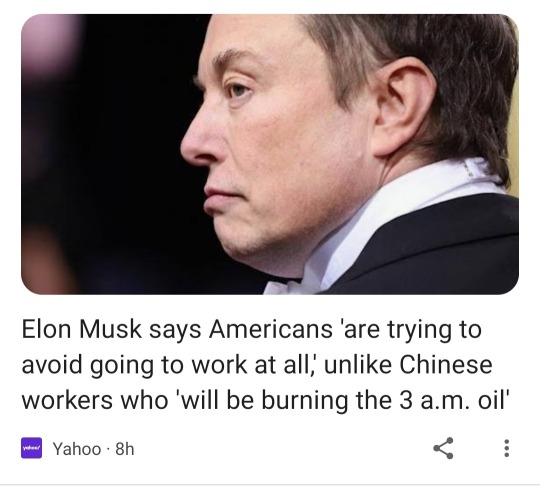

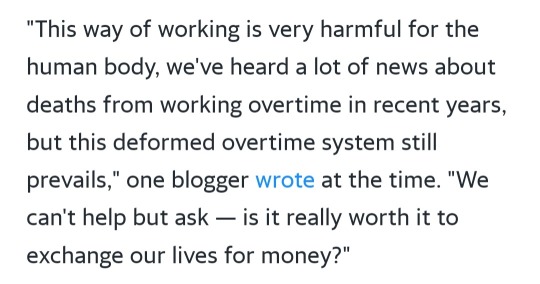
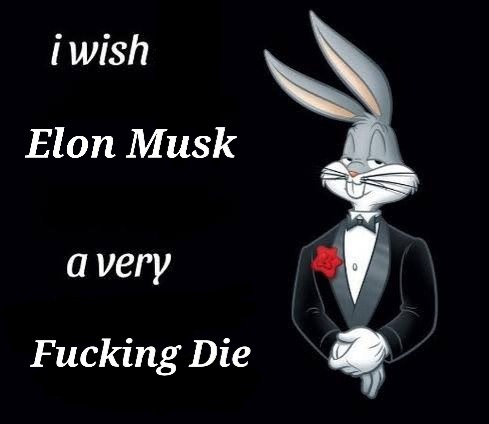
#elon musk#america#china#economy#social justice#late stage capitalism#end stage capitalism#capitalism#monster#scumbag#meme#i wish all meme#politics#tesla#greed#human rights#human rights violations#equality#worker rights#asia#news#world news#twitter
119K notes
·
View notes
Text

25K notes
·
View notes
Text
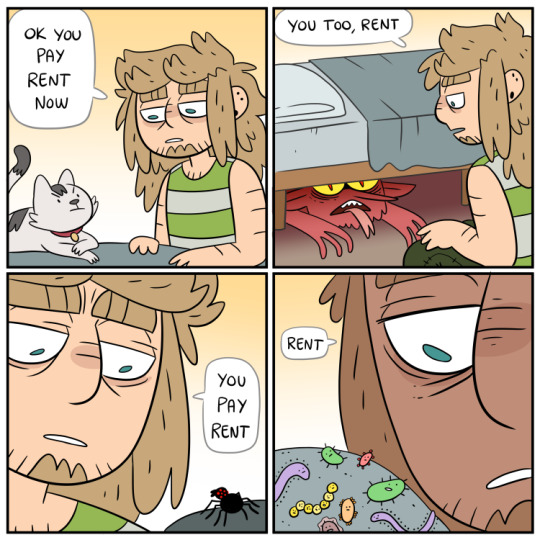
The economy, man.
2K notes
·
View notes
Text
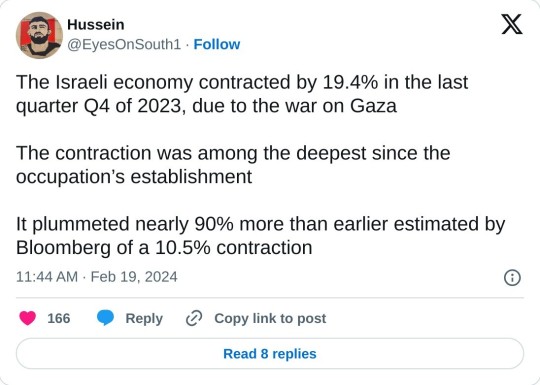
The economy in the fourth quarter was impacted by a 26.9% drop in private spending - the main growth driver - an 18.3% fall in exports and 67.8% slide in investment in fixed assets, especially in residential building.
Government spending, mainly on war expenses and compensating businesses an
#yemen#jerusalem#tel aviv#current events#palestine#free palestine#gaza#free gaza#news on gaza#palestine news#news update#war news#war on gaza#bds movement#economy
8K notes
·
View notes
